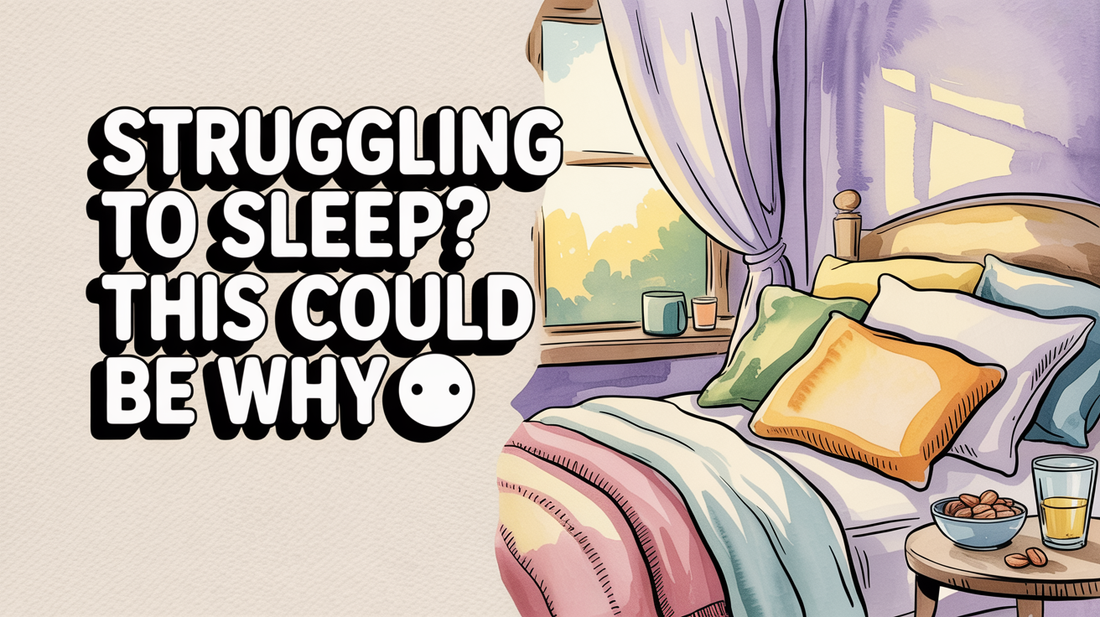Why You Can’t Sleep—And How Magnesium Deficiency Might Be to Blame
If you're struggling with sleep issues, you're not alone. Many people find themselves tossing and turning at night, and magnesium deficiency may play a role in your sleeplessness. This essential mineral is critical for sleep regulation, and understanding its connection to sleep can empower you to take action. In this post, we'll explore three key areas: the link between magnesium and sleep, hidden causes of restless nights, and how magnesium spray can support your bedtime routine.
The Connection Between Sleep and Magnesium
Magnesium is vital for a good night's sleep as it supports both the nervous system and muscle relaxation. This mineral may help activate the parasympathetic nervous system, which is responsible for calming the body. Without sufficient magnesium, many individuals may experience disruptions in their sleep quality and duration, which can leave you feeling drained the next day.
- Magnesium helps regulate neurotransmitters like GABA, promoting a sense of relaxation.
- This mineral supports the production of melatonin, crucial for maintaining healthy sleep cycles.
- About 50% of adults in developed nations may experience magnesium deficiency.
- Low magnesium levels are linked to various sleep disturbances, including insomnia and restless leg syndrome.
- Some studies suggest that magnesium supplementation can enhance sleep efficiency and reduce the time it takes to fall asleep.
Try It Tonight: Quick Start ✅
- Unplug from screens and dim the lights 10–15 minutes before bed.
- Engage in gentle stretching or practice slow breathing techniques.
- Apply Jane Vine Dreamzzz Magnesium Spray as directed (4–8 sprays on legs/arms/shoulders). Consider a patch test if you are new to topical applications.
Hidden Causes of Restless Nights
Sleep challenges can stem from more than just stress or caffeine consumption. Modern lifestyles often introduce hidden obstacles to restful nights. By recognizing these factors, you can better understand why traditional sleep advice might not work for you.
- Processed foods and refined sugars may deplete magnesium levels and disrupt blood sugar balance at night.
- Exposure to blue light from screens can suppress melatonin production, delaying sleep onset.
- Chronic stress may elevate cortisol levels, which can interfere with natural sleep-wake cycles.
- Some medications, such as diuretics and proton pump inhibitors, can hinder magnesium absorption.
- Poor gut health can impair the body's ability to absorb magnesium, even if your diet is sufficient.
Why We Recommend a Gentle Helper 🌿
The Jane Vine Dreamzzz Magnesium Spray is crafted for quick absorption and a soothing feel, helping to enhance your bedtime routine.
- Quick-absorbing formula—no sticky residue.
- Gentle application designed to minimize irritation.
- A calming scent that is perfect for bedtime.
How Magnesium Spray Supports Bedtime 🔍
Topical magnesium spray provides a convenient way to boost magnesium levels for improved sleep. This method bypasses digestive concerns and allows for direct absorption through the skin. Many users have reported enhanced sleep quality when integrating magnesium spray into their nighttime routine.
- Transdermal absorption avoids the gastrointestinal side effects linked to oral supplements.
- Magnesium chloride in spray form has high bioavailability and is quickly absorbed by the body.
- Applying it to your feet, legs, or arms 30 minutes before bed may help promote relaxation.
- The ritual of applying magnesium spray can signal to your body that it’s time to wind down.
- Research indicates that topical forms of magnesium can be just as effective as oral supplements in raising magnesium levels.

